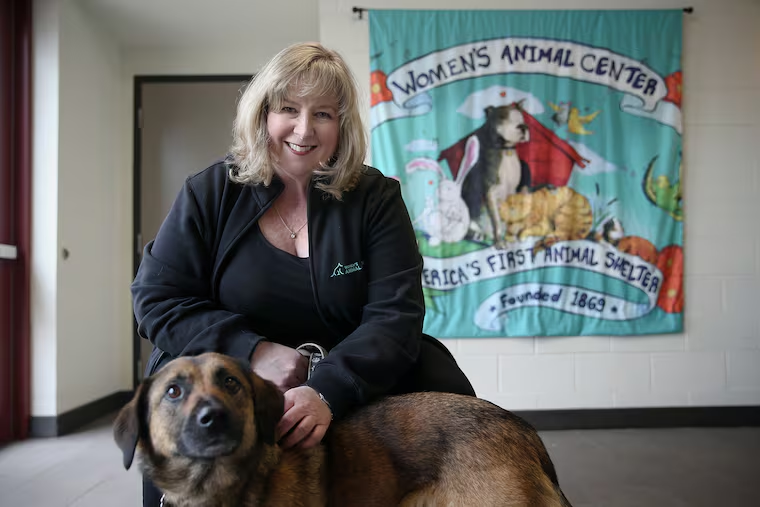30 Philadelphia women created ‘America’s First Animal Shelter.’ At last, they get their due.
On April 14, the Women’s Animal Center, recently renamed from the Women’s Humane Society, will celebrate its 150th anniversary — a significant milestone, shelter management says, and one that will highlight the organization’s roots.

In 1869, the Women’s Branch of the Pennsylvania Society for the Prevention of Cruelty to Animals opened in Philadelphia as the nation’s first animal shelter. Now, 150 years later, it still stands in the form of the Women’s Animal Center, a modern, airy shelter in Bensalem.
Yet the backstory of the shelter and its founder has largely fallen into obscurity.
That will change, said Catherine Malkemes, the shelter’s chief executive officer, and Suzanne L. Bush, president of the shelter’s board of directors.
On April 14, the Women’s Animal Center, recently renamed from the Women’s Humane Society, will celebrate its 150th anniversary — a significant milestone, shelter management says, and one that will highlight the organization’s roots.
"We wanted to focus on the women because of the history and the fact that these women were so courageous and innovative,” Bush said.
To celebrate, there will be parties. A ribbon-cutting. A National Animal Shelter Day of Service, during which shelter officials hope people will volunteer, donate supplies or money, or adopt a pet. A ceremony around the shelter’s newly granted historical marker, to be staked this fall at either the Pennsylvania Women’s SPCA’s original meeting site at 923 Walnut St., or its first office, at 1320 Chestnut St.
They hope it will amplify the shelter’s history.
Consider the way the shelter started, Malkemes said, sitting in her office, as she carefully opened the organization’s first annual report, dated 1870.
On April 14, 1869, she said, a little more than two dozen women clustered in the parlor of a Philadelphia home to talk about a troubling issue. They saw that carriage horses were beaten, overworked, and malnourished. Stray dogs and cats roamed the streets. Others were corralled in the city’s pound and left to flounder.
The women saw an opportunity. Led by the activist Caroline Earle White, they took over the pound and barred doctors from performing medical experiments on dogs. White and her allies also raised money to build watering stations for horses and small animals, all the while encouraging people to report animal abuse.
Now, 150 years later, the shelter, relocated from an aging building in Philadelphia to a sprawling complex in Bensalem, houses more than 200 animals, a full-service veterinary hospital, physical therapy for animals, an education center, and a space for dog training.
“One of the things Caroline Earle White did was she made a connection,” said Suzanne L. Bush, president of the shelter’s board of directors. "... She made a connection between compassionate care of animals and compassionate care of people.”
That remains the mission of the Women’s Animal Center, which in addition to dog, cat, and small-creature adoptions, provides affordable veterinary care for pets and educates the community about proper care of animals.
“These women never got credit for what they did. I think today people look back and they say, ‘Oh wow, that was nice,’ but they don’t really think about it in terms of ‘It was more than nice,’ ” Bush said, sitting at a table where historic photos of White had been placed. “They had to be relentless and stand up for themselves and stand up for the animals.”